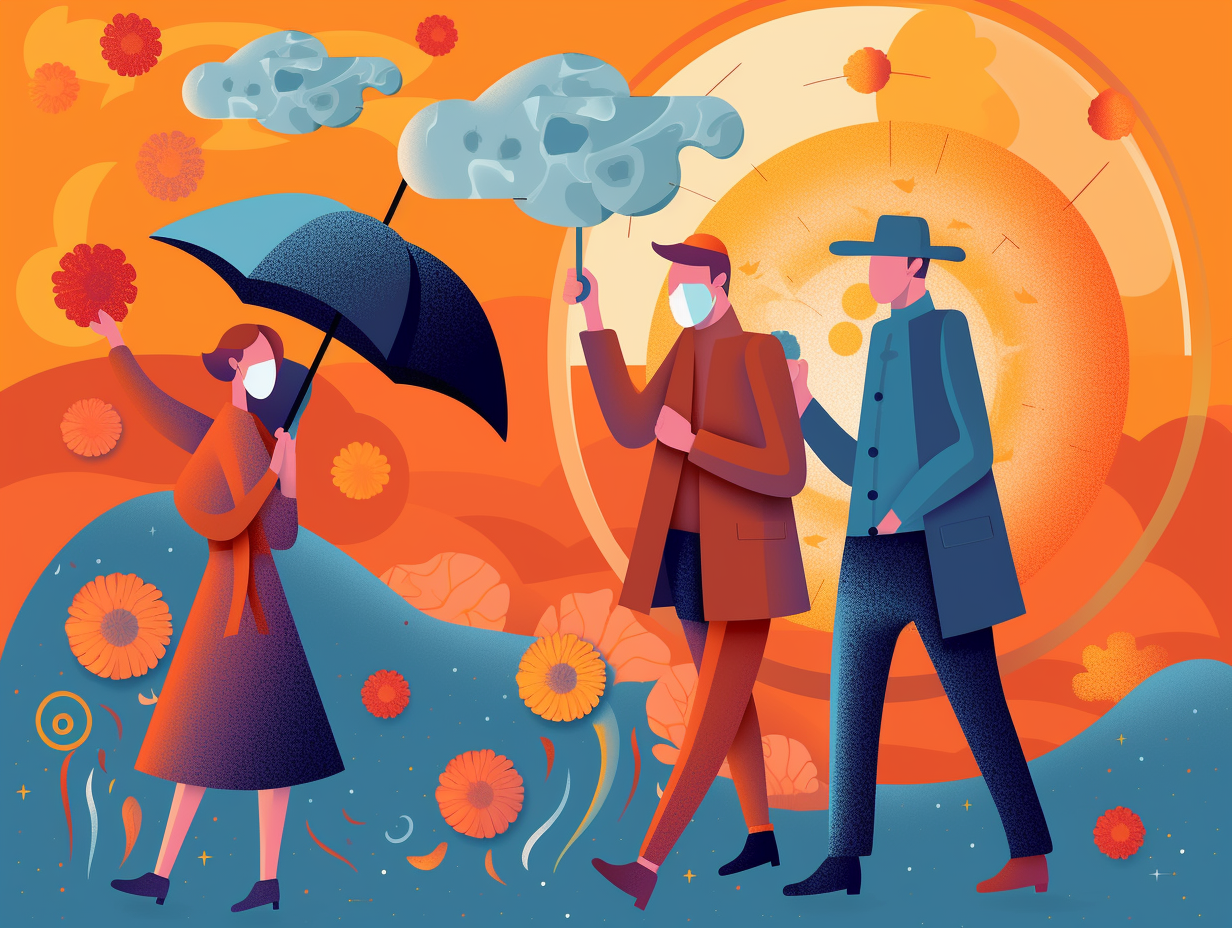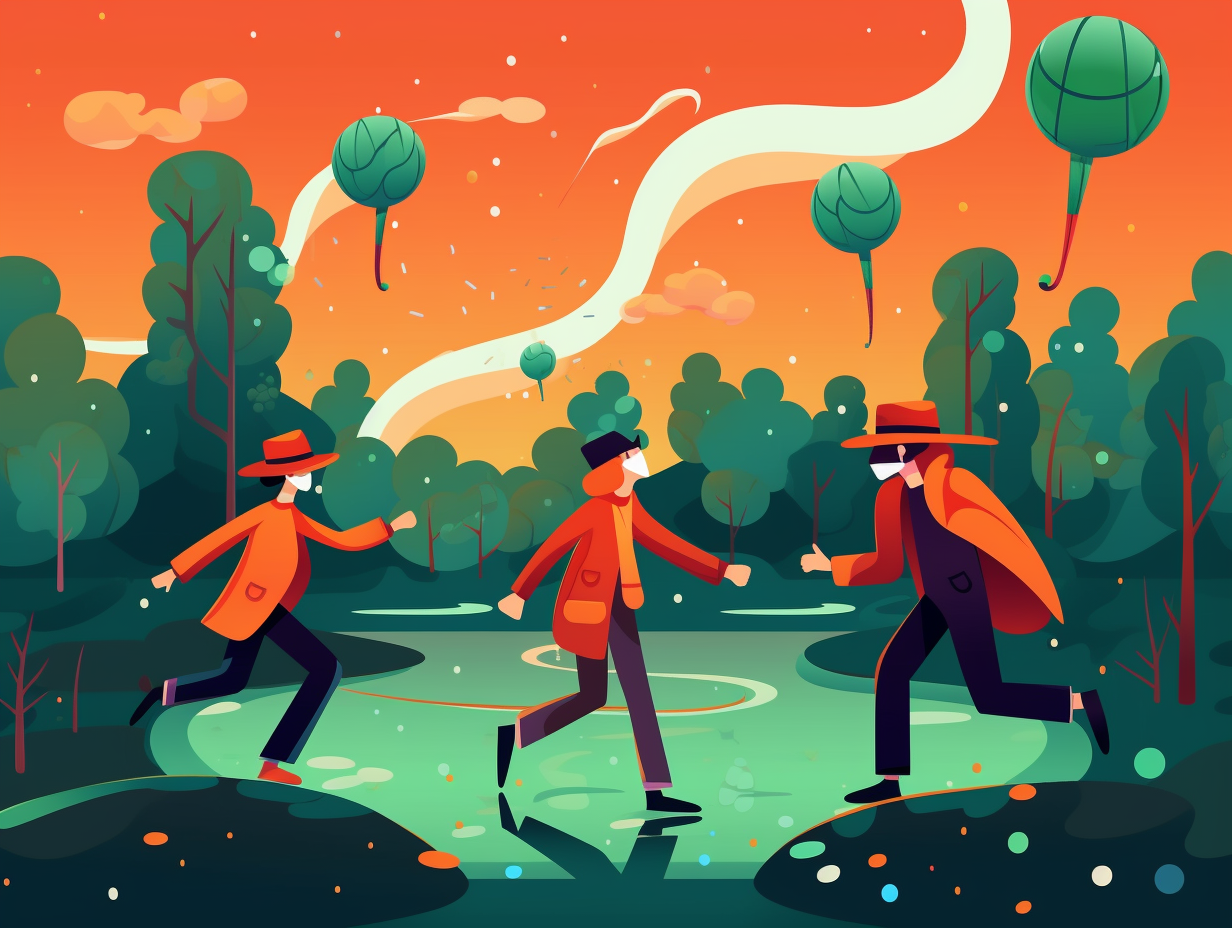11 Surprising Fun Facts About Smell: Discover the Secrets of Our Most Underrated Sense

1. Flavorful Sniffers
Feeling flavor-blasted or just a whiff fainthearted? Turn your tongue-twisting sensations upside-down and follow your nose to the true taste treasures: Contrary to popular belief, our experience of flavor is actually derived from our sense of smell! This tasty secret was divulged by Harvard neuroscience professor Venkatesh Murthy at a panel discussing olfaction and science. He explained that when we savor our food, it's actually the molecules traveling retro-nasally to the nasal epithelium that create those complex, delicious flavors. So, next time you're indulging in a scoop of your favorite ice cream, just remember—it's your sniffer that's the true flavor connoisseur!
Source => news.harvard.edu
2. Sweet Aromas, Sweeter Tastes
Ever heard of a "sweet aroma" and wondered if it's just a figure of speech? Well, your nose might just be the true connoisseur of confections: Certain odours can actually enhance or suppress the perceived sweetness of a tasted sucrose solution, with fragrances like caramel, strawberry, and maracuja sweetening the deal, while damascone, angelica oil, and cedryl acetate play the role of sugar-snatchers. Get ready to take your tastebuds on a sensory rollercoaster, as these delectable whiffs make even the sourest citric acid solution taste a lot sweeter!
Source => academic.oup.com

Did you know an adult human has a whopping 60,000 miles of blood vessels inside their body? Discover more amazing facts about our incredible, party-going heart and beyond!
=> Fun Facts about The-Human-Body
3. Perfume Pros & Olfactory Training
Hold your nose and grab your monocle: it turns out that "million-dollar noses" in the perfume industry might not be all that snooty after all! Contrary to common belief, studies suggest that perfumers and other odor aficionados don't necessarily possess superior smelling capabilities, but rather undergo specific olfactory training to improve their sensitivity and discrimination abilities. Bottoms up to the wine connoisseurs though, as they do exhibit better memory skills when it comes to aromatic notes.
Source => ncbi.nlm.nih.gov
4. Smells Influence Dreamland
You know how they say "stop and smell the roses"? Well, it turns out that even when you're catching Z's in Dreamland, your nose is still working hard to make sure you wake up on the right side of the bed: Research reveals that olfactory stimuli during sleep can influence the emotional content of dreams, with pleasant scents like roses leading to more positive dreams and unpleasant odors like rotten eggs resulting in negatively toned ones, although the actual smells themselves aren't necessarily incorporated into the dreams.
Source => pubmed.ncbi.nlm.nih.gov

5. Age vs. The Mighty Nose
Aging is truly the nose's kryptonite, rendering our sniffers vulnerable to the sinister forces of sinus scoundrels and hostile odors: Studies show that our sense of smell weakens as we grow older, with an increased prevalence of olfactory dysfunction after the age of 60, particularly in males and being associated with factors like smoking, heavy alcohol use, and certain diseases. However, fret not! A potential superhero emerges in the form of olfactory training with odorants, offering a glimmer of hope for improving our elderly sniffers' capabilities.
Source => ncbi.nlm.nih.gov
6. 1 Trillion Smelly Victories
The human schnoz: the greatest underdog of the five senses, crushing popular beliefs, trouncing expectations, all while surreptitiously sniffing out 1 trillion distinct odors! In reality, it's our olfactory prowess that holds the crown, boasting a whopping 400 different scent receptors that are ready to apprehend even the sneakiest of smells. But beware, scientists are still hot on the trail of unriddling how our proficient proboscises and nifty neurons work in cahoots to decode the molecules wafting through the air. So the next time someone says your sense of smell isn't worth a sniff, remember that noses everywhere are silently straightening their nasal bridges in pride.
Source => scientificamerican.com
7. Allergies: Taste Assassins
Sniffing out the culprit for tasteless jokes and bland experiences? Allergies might be guilty!: Severe congestion in the nasal passages can lead to temporary loss of smell and taste, treatable through antihistamines, nasal sprays, allergy drops, and shots. Don't ignore unexplainable sudden, severe, or lasting changes in your sense of smell and taste, and consult an ENT specialist.
Source => advancedentdenver.com
8. Cunning Scent-Snaring Plant
In a world where love potions are all the rage, meet the cunning Aristolochia rotunda plant - the master of mimicry that flips the script by smelling like danger to get what it wants: The Aristolochia rotunda plant attracts and traps kleptoparasitic adult flies by imitating the alarm pheromones of their prey, the mirid bugs, through a strategy called kleptomyiophily, debunking the idea of brood-site deception.
Source => frontiersin.org
9. Stuffy Nose Strikes Taste Buds
You could say that a stuffy nose truly "nose" how to ruin a tasting party: When we're congested due to colds or allergies, we lose around 80% of our capacity to detect tastes like sweet, salty, and bitter, but some aromas can still sneak through the back door, via our mouths while chewing, keeping the flavor fiesta alive, albeit a little muffled.
Source => scienceworld.ca

10. Smell-a-Gnome Time Travel
Why did the smell-a-gnome cross the road? To jog your memory, of course! In a brain-boggling twist, the neurons in our olfactory receptor cells connect directly with the amygdala (emotions central) and the hippocampus (memory manor), which is why certain scents can awaken powerful emotions and transport us back in time to nostalgic childhood moments faster than a flux capacitor!
Source => scientificamerican.com
11. Bug-Repelling Super Sniffers
Hold onto your nostrils, bug haters: olfactory kryptonite is in the works! That's right, scientists are developing insect repellents based on activating pesky insects' repugnance receptors, deterring them from destroying crops and spreading diseases, with some even detecting CO2, short-chain organic acids, and microbe-produced geosmin.
Source => ncbi.nlm.nih.gov
Related Fun Facts




















